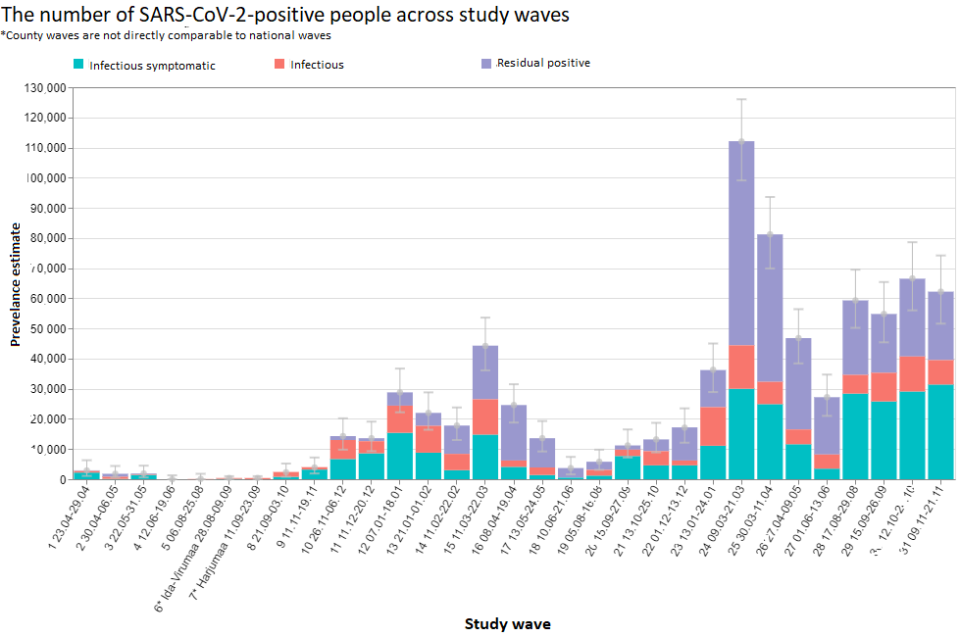-
Faculty of Arts and HumanitiesDean's Office, Faculty of Arts and HumanitiesJakobi 2, r 116-121 51005 Tartu linn, Tartu linn, Tartumaa EST0Institute of History and ArchaeologyJakobi 2 51005 Tartu linn, Tartu linn, Tartumaa EST0Institute of Estonian and General LinguisticsJakobi 2, IV korrus 51005 Tartu linn, Tartu linn, Tartumaa EST0Institute of Philosophy and SemioticsJakobi 2, III korrus, ruumid 302-337 51005 Tartu linn, Tartu linn, Tartumaa EST0Institute of Cultural ResearchÜlikooli 16 51003 Tartu linn, Tartu linn, Tartumaa EST0Institute of Foreign Languages and CulturesLossi 3 51003 Tartu linn, Tartu linn, Tartumaa EST0School of Theology and Religious StudiesÜlikooli 18 50090 Tartu linn, Tartu linn, Tartumaa EST0Viljandi Culture AcademyPosti 1 71004 Viljandi linn, Viljandimaa EST0Professors emeriti, Faculty of Arts and Humanities0Associate Professors emeriti, Faculty of Arts and Humanities0Faculty of Social SciencesDean's Office, Faculty of Social SciencesLossi 36 51003 Tartu linn, Tartu linn, Tartumaa EST0Institute of EducationJakobi 5 51005 Tartu linn, Tartu linn, Tartumaa EST0Johan Skytte Institute of Political StudiesLossi 36, ruum 301 51003 Tartu linn, Tartu linn, Tartumaa EST0School of Economics and Business AdministrationNarva mnt 18 51009 Tartu linn, Tartu linn, Tartumaa EST0Institute of PsychologyNäituse 2 50409 Tartu linn, Tartu linn, Tartumaa EST0School of LawNäituse 20 - 324 50409 Tartu linn, Tartu linn, Tartumaa EST0Institute of Social StudiesLossi 36 51003 Tartu linn, Tartu linn, Tartumaa EST0Narva CollegeRaekoja plats 2 20307 Narva linn, Ida-Virumaa EST0Pärnu CollegeRingi 35 80012 Pärnu linn, Pärnu linn, Pärnumaa EST0Professors emeriti, Faculty of Social Sciences0Associate Professors emeriti, Faculty of Social Sciences0Faculty of MedicineDean's Office, Faculty of MedicineRavila 19 50411 Tartu linn, Tartu linn, Tartumaa ESTInstitute of Biomedicine and Translational MedicineBiomeedikum, Ravila 19 50411 Tartu linn, Tartu linn, Tartumaa ESTInstitute of PharmacyNooruse 1 50411 Tartu linn, Tartu linn, Tartumaa ESTInstitute of DentistryL. Puusepa 1a 50406 Tartu linn, Tartu linn, Tartumaa ESTInstitute of Clinical MedicineL. Puusepa 8 50406 Tartu linn, Tartu linn, Tartumaa ESTInstitute of Family Medicine and Public HealthRavila 19 50411 Tartu linn, Tartu linn, Tartumaa ESTInstitute of Sport Sciences and PhysiotherapyUjula 4 51008 Tartu linn, Tartu linn, Tartumaa ESTProfessors emeriti, Faculty of Medicine0Associate Professors emeriti, Faculty of Medicine0Faculty of Science and TechnologyDean's Office, Faculty of Science and TechnologyVanemuise 46 - 208 51003 Tartu linn, Tartu linn, Tartumaa ESTInstitute of Computer ScienceNarva mnt 18 51009 Tartu linn, Tartu linn, Tartumaa ESTInstitute of GenomicsRiia 23b/2 51010 Tartu linn, Tartu linn, Tartumaa ESTEstonian Marine Institute0Institute of PhysicsInstitute of ChemistryRavila 14a 50411 Tartu linn, Tartu linn, Tartumaa EST0Institute of Mathematics and StatisticsNarva mnt 18 51009 Tartu linn, Tartu linn, Tartumaa EST0Institute of Molecular and Cell BiologyRiia 23, 23b - 134 51010 Tartu linn, Tartu linn, Tartumaa ESTTartu ObservatoryObservatooriumi 1 61602 Tõravere alevik, Nõo vald, Tartumaa EST0Institute of TechnologyNooruse 1 50411 Tartu linn, Tartu linn, Tartumaa ESTInstitute of Ecology and Earth SciencesJ. Liivi tn 2 50409 Tartu linn, Tartu linn, Tartumaa ESTProfessors emeriti, Faculty of Science and Technology0Associate Professors emeriti, Faculty of Science and Technology0Institute of BioengineeringArea of Academic SecretaryHuman Resources OfficeUppsala 6, Lossi 36 51003 Tartu linn, Tartu linn, Tartumaa EST0Area of Head of FinanceFinance Office0Area of Director of AdministrationInformation Technology Office0Administrative OfficeÜlikooli 18A (III korrus) 51005 Tartu linn, Tartu linn, Tartumaa EST0Estates Office0Marketing and Communication OfficeÜlikooli 18, ruumid 102, 104, 209, 210 50090 Tartu linn, Tartu linn, Tartumaa EST0Area of Vice Rector for Academic AffairsOffice of Academic Affairs0University of Tartu Youth AcademyUppsala 10 51003 Tartu linn, Tartu linn, Tartumaa EST0Student Union OfficeÜlikooli 18b 51005 Tartu linn, Tartu linn, Tartumaa EST0Centre for Learning and TeachingArea of Vice Rector for ResearchUniversity of Tartu LibraryW. Struve 1 50091 Tartu linn, Tartu linn, Tartumaa EST0Grant OfficeArea of Vice Rector for DevelopmentCentre for Entrepreneurship and InnovationNarva mnt 18 51009 Tartu linn, Tartu linn, Tartumaa EST0University of Tartu Natural History Museum and Botanical GardenVanemuise 46 51003 Tartu linn, Tartu linn, Tartumaa EST0International Cooperation and Protocol Office0University of Tartu MuseumLossi 25 51003 Tartu linn, Tartu linn, Tartumaa EST0Area of RectorRector's Strategy OfficeInternal Audit Office
Coronavirus prevalence remains high due to a new Omicron subtype and a declining sense of danger

The results of the November wave of the University of Tartu-led coronavirus prevalence study show that the virus spread remains consistently high for the fourth month. The same can be said about antibody prevalence. The wide spread of the virus is driven by the more infectious Omicron subtype on the one hand and by people's declining sense of danger on the other.

During the survey wave from 15 to 28 November, 1,970 people were tested for coronavirus. 5.8% of them tested positive, with 3.7% (one in 27 adults) still infectious. Of the infectious, 80% had either mild or moderate symptoms. According to Ruth Kalda, head of the prevalence study and Professor of Family Medicine at the University of Tartu, these figures have been more or less the same since the end of August. The persistence of high infection rates is partly due to the Omicron subtype BQ1.1, which was already noticed during the previous survey wave and has gained a strong foothold in Estonia. It has caused as many as a fifth of the cases detected in the current wave. "This is an even more contagious than the previous Omicron strain, and can bypass the immune response of previous infections. Fortunately, the cases caused by this strain also tend to be mild, and it usually does not cause severe disease," Kalda explained.
In this study wave, 1,855 people provided samples for antibody analysis, and 90% of them had antibodies. Among people over 65, antibody prevalence was 95%. This study wave showed that while almost all vaccinated people have antibodies, only 66% of those who have not been vaccinated but have recovered from the disease have antibodies. Again, the data confirm that people who have received two booster doses have significantly more antibodies than others. They also have slightly fewer cases of infection. While 15% of respondents in the younger age group would like to get the booster dose, a third of those over 65 are planning to get it. Ruth Kalda strongly recommends that all older people and all people in high-risk groups with underlying diseases get the booster dose.
A behavioural survey carried out during the study again showed that the general sense of danger has decreased. Even though one in ten adults has had close contact with a potentially infected person, only one in five have taken action to contain the spread of infection. According to Kalda, people tend to forget that coronavirus is an infectious disease. She reminded people again that the easiest way to avoid contracting the virus and spreading the infection is to take the usual precautions: wash your hands, take a rapid test even with mild symptoms and avoid close contact if you show any signs of the virus.
The study on the prevalence of coronavirus is carried out by a broad-based research group of the University of Tartu in cooperation with Synlab Eesti, Medicum and Kantar Emor.
The prevalence study is the only tool in Estonia to monitor the prevalence of the coronavirus in adult population. The findings will help decision-makers to make evidence-based decisions on the use of healthcare resources for the health and well-being of Estonian citizens. The study is commissioned by the Government of the Republic and funded by the European Regional Development Fund from the EU measure to respond to the Covid-19 pandemic.
For more information about the study, see the University of Tartu web page.
Read more similar news






